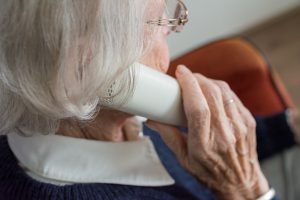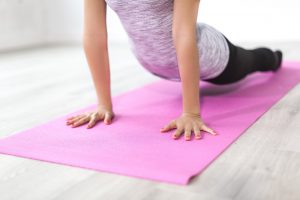Throughout our lives there may be times when we experience a profound sense of loneliness or isolation. For many people, loneliness will increase as we age. According to AARP (formerly the American Association of Retired Persons), 51% of people over age 75 live alone, and a 2012 study found that 43% of people over the age of 60 report a sense of loneliness due to living alone or being confined to their home.
It is natural to experience feelings of loss and loneliness after adult children move away, or because friends are in poor health and less able to socialize. Your own health restrictions might also limit your ability to travel far to visit friends and family. Loneliness can become all consuming, impacting your physical and mental health – but it doesn’t have to. There are ways you can build a community for yourself to lessen the feelings of loneliness and isolation.

Loneliness Affects Physical and Mental Health
There have been many studies drawing connections between senior isolation and physical health issues, including obesity, high blood pressure, mobility issues, and decreased immune system, which limits the body’s ability to fight off infections. One study even reports that the impact of loneliness on mortality is comparable to smoking 15 cigarettes a day.
The impact on mental health is also severe. Loneliness increases chances of developing clinical dementia by over 60%. In a study of over 1000 seniors with typical brain function, those with infrequent social interactions saw 70% more cognitive decline than their more social counterparts. According to Dr. Bryan James, an epidemiologist at the Rush Alzheimer’s Disease Center, this is because “when you use your body the way it was intended… you age better. We just aren’t meant to be disengaged from one another”.
How To Combat Isolation
AARP reports that most seniors – as many as 90% – want to continue living in their own homes for the next 5-10 years. Many people resist the option to move into assisted living because they feel they would be giving up their independence. But because community and socialization are incredibly important to health and mental wellness, and contribute to a longer, fuller life, you may want to look into other options, like community living.

Community living is very different from assisted living. Assisted living is for seniors who are unable to safely live by themselves. Assisted living is typically community centered, but also has varying levels of medical and staff involvement, including scheduled meal times, medicine distribution, physical support, transportation, and structured activities. Community living tends to be a bit more relaxed, offering hospitality services, as well as structured groups and leisurely activities that are encouraged, but not mandatory.
There are other ways to combat isolation for folks who still live in their own homes:
- Volunteer in your community: This is a great way to get out and give back to the community. Volunteering gives a sense of accomplishment, purpose, and value. Think of a cause you care about, and there’s likely a volunteer opportunity to match. Try local libraries, hospitals, community centers, animal shelters, or schools.
- Join a fitness center: Work on your health while meeting people who might share similar interests. Try opting for group classes like zumba, yoga, or water aerobics.
- Learn something new: Most colleges and community centers offer a wide variety of adult education classes. Learn a new language, craft, or skill. You’ll meet new people and perhaps find a new passion, too!
- Join a club or group: Many communities have clubs for gardening, cooking, walking, or reading. Take this opportunity to find people who share your interests while doing something you love!

Reach out to friends and family on the phone or through the computer.
- Reach out to family and friends: If the Covid-19 pandemic has taught us anything, it’s that we have a wealth of technology to keep us connected to our loved ones. Computers, phones, and tablets can all be made more accessible with built-in tools, and they’re a great method for staying connected to family and friends if they live far away. Try connecting through social media, video chats, or email.
As humans, we rely on connectivity to feed our souls. Community (along with opposable thumbs!) is one of the main differences between us and the chimpanzees with whom we share the majority of our DNA. When isolated, we can experience declines in mental health, cognitive ability, and even physical wellness. Luckily, we can combat these issues through community ties and social engagement. With a greater connection to the community around them, seniors will see improvements in health, cognitive ability, and even longevity. With so many ways to stay connected to loved ones, meet new friends, and contribute to your community, nobody should feel isolated or lonely.


